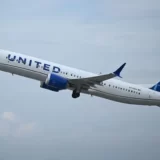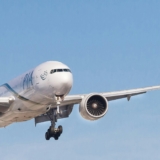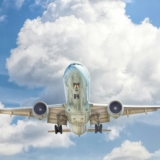Boeing’s Path to Redemption: Prioritizing Safety and Quality
In the wake of recent incidents and challenges facing aviation giant Boeing, FAA Administrator Michael Whitaker has issued a stark call to action, emphasizing the urgent need for the company to recenter its priorities on Fsafety and quality in its production processes.
In an exclusive interview, Whitaker highlighted the critical importance of ensuring that safety remains paramount in the aerospace industry, especially in light of recent setbacks and controversies surrounding the company’s operations. From the grounding of the 737 MAX aircraft to concerns over manufacturing defects and quality control lapses, the aviation giant has faced a series of high-profile challenges that have cast doubt on its commitment to safety and quality.
Whitaker’s remarks come at a pivotal moment for the company as it seeks to regain the trust and confidence of regulators, customers, and the flying public. With the aviation industry poised for a resurgence in the wake of the COVID-19 pandemic, the stakes could not be higher for them to demonstrate its unwavering dedication to safety and reliability.
The FAA chief’s call for Boeing to refocus on safety and quality underscores the broader imperative for accountability and transparency within the aerospace sector. As the regulatory authority responsible for overseeing aviation safety in the United States, the Federal Aviation Administration plays a pivotal role in ensuring that manufacturers adhere to the highest standards of safety and quality.
In recent years, they have faced intense scrutiny over its corporate culture and decision-making processes, with critics alleging that cost-cutting measures and production pressures have compromised safety and quality standards. The grounding of the 737 MAX fleet in 2019 following two deadly crashes, which claimed the lives of 346 people, served as a sobering wake-up call for the company and the broader aviation industry.
Since then, they have embarked on a concerted effort to address the root causes of the MAX crisis and implement comprehensive reforms aimed at enhancing safety and quality throughout its operations. However, recent incidents, including manufacturing defects on certain aircraft models, have raised fresh concerns about the company’s ability to uphold rigorous safety standards.
Whitaker’s admonition to the aviation corporation serves as a timely reminder that the pursuit of profitability must never come at the expense of safety or compromise the integrity of the aerospace industry. As they grapple with the fallout from past missteps and navigates the challenges of an increasingly competitive market, it must remain steadfast in its commitment to fostering a culture of safety, excellence, and accountability.
Ultimately, the path to redemption for the company hinges on its ability to earn back the trust and confidence of stakeholders through tangible actions that prioritize safety and quality above all else. As the Federal Aviation Administration continues to work closely with Boeing to address ongoing safety concerns and implement robust oversight measures, the company must seize this opportunity to reaffirm its leadership role in shaping the future of aviation. Only by embracing a steadfast commitment to safety and quality can they hope to regain its standing as a trusted steward of air travel and uphold the highest standards of excellence in the aerospace industry.






